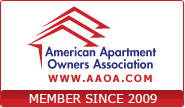Tristan is the Executive Vice President and shareholder with the law firm of Petrie+Pettit and focuses his practice in the area of landlord-tenant law representing landlords and property management companies throughout Wisconsin.
Call us: (414) 276-2850
TENANT MOVED OUT AND LEFT YOU HOLDING THE BAG!
Posted by Tristan R. Pettit, Esq. in Collections / Comments
With a short week ahead of us due to the Thanksgiving holiday, and the fact that I will be traveling to the wonderful land of flat terrain and tons of wind (a.k.a Kansas), I thought I would take this opportunity to re-post some very good advice from a friend of mine and fellow blogger, Bill Gray of Rent Recovery Services, who is also known as The Landlord Doctor. http://www.TheLanlordDoctor.com
Bill writes a blog that focuses on collection issues, and specifically collection issues related to past tenants. He also serves as the regional manager for a great collection service called Rent Recovery Service which I wrote about in a prior blog. Bill has some very good advice to share and I especially enjoyed his blog post entitled:
TENANT MOVED OUT - LEFT YOU HOLDING THE BAG.
Perhaps your tenant lied and took advantage of you. He may have skipped out on the lease or you may have evicted him. In either case, he damaged your rental and cost you money! What do you do now?
1. First, set your emotions aside and spend some time organizing your ex-tenant’s file. Whether you own one unit or one thousand, or whether you manage your rentals full-time or part-time, you are running a business. Any successful business keeps well organized, complete records.
2. Keep copies of all receipts required to repair the unit, spent on legal fees, unpaid rent, etc. Complete a move-out inspection checklist, preferably with the tenant if possible. Both of you sign the document. The move-out inspection will help you document the condition of your unit and the debt he owes you. If you are not completing move-in inspection checklists now, begin doing so with your next move-in. This important step is often left out because “I didn’t have time”. Take the time. There is no excuse for not having a complete move-in inspection signed by you and the tenant.
preferably with the tenant if possible. Both of you sign the document. The move-out inspection will help you document the condition of your unit and the debt he owes you. If you are not completing move-in inspection checklists now, begin doing so with your next move-in. This important step is often left out because “I didn’t have time”. Take the time. There is no excuse for not having a complete move-in inspection signed by you and the tenant.
3. A sometimes confusing issue for some landlords is whether or not you may charge through the lease. If the tenant signed a twelve month lease and skipped out or was evicted after only six months, does he owe you for the remaining six months? The short answer is no, not yet. In many states, if you cannot re-rent the unit before the end of the lease, the tenant will owe you the lost rent. However, he does not owe you the rent until it is actually due. Only charge him now for lost rent, as of the date of the move-out statement. If you wish, you may update the amount he owes each month until the unit is re-rented or the lease expires. Discuss this issue with your attorney.
4. Does your lease include termination and/or “no notice” fees? I often hear, “It is in the lease; he has to pay it.” The thinking here is that if it is in the lease, it is binding. This is not necessarily true. Termination and no notice fees may be legal in your state, and your tenant may be held responsible for them. With various state laws and recent case law, I highly recommend you have your lease periodically reviewed by an attorney to make sure you are complying with current laws. If legal in your state, termination and no notice fees may be a great way to calculate all charges at the time of move-out, without having to add future rent as it comes due. Again, talk with your attorney about this.
5. Take pictures. A digital camera is important to your business. Move-in pictures are nice to have but move-out pictures are a must have. The checklist and pictures not only help document the condition of the unit, but they may be helpful later if the tenant gets creative with his description of the condition when he moved in and when he moved out.
6. Keep a log of all communications you have with your tenant, especially any communication regarding him moving or paying his rent. If you do not have a log, begin using one immediately for all your present and future tenants.
7. Once you have your records together, complete a move-out statement. Most likely your management software will do this for you. The move-out statement should include the names of everyone who signed the lease, the unit address, move-in and move-out dates, and a break down of the charges. If a deposit was placed on the unit, you will show the deposit subtracted from the total due. State laws vary on what, how, and when you are required to notify the tenant of how you applied his deposit. Follow the law to the letter. Not doing so will give your debtor the upper hand, and you may be required to repay his deposit even though he actually owes you money! Some states require that this move-out statement be mailed certified mail within a certain number of days of move-out. Keep your certified mail receipt with your records. You may need proof that you complied with the law. Mail the move-out statement to your debtor at his last known address. This may be the address of your rental unit. If the letter is returned un-received, keep it in the file also.
8. A word of caution here: Some landlords are tempted to pile on and exaggerate the charges. While tempting, it will do you no good in the end, and it is not legal. Being fair and reasonable in your charges will greatly increase your chances of recovering the debt.
9. Now that you have your documents organized and have mailed the move-out statement, do not just put the file away somewhere and forget it. The money you are owed is an asset. I cannot tell you how many times I have heard the comment, “That bum will never pay his bill!” I can tell you with confidence that this way of thinking is costing landlords millions of dollars a year in lost profit. With little time and effort on your part, you may collect all or part of what you are owed.
I can help you with this collection process. Contact me at: Bill@thelandlorddoctor.com.
Thanks for the great words of advice Bill!
Happy Thanksgiving to my readers.




